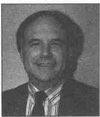 |
Home | Search | Browse | About IPO | Staff | Links |
Politics
Netsch vs. Edgar promises
airing on taxes, education

|
By CHARLES N. WHEELER III
"We held an election in Illinois today, and the truth won."
"I really think it had a lot more to do with the fact she's playing pool." Whether achieved through candor on taxes or by skill with a cuestick. Dawn dark Netsch's come-from-behind victory in the Democratic primary last month promises to make the 1994 race for governor something extraordinary. The obvious gender question aside, what sets this campaign apart from standard political fare is the very real prospect that the critical issues of school funding and tax reform will receive a thorough airing in the coming months. Certainly, Netsch and Edgar have staked out starkly contrasting positions on the intertwined questions. The major plank of Netsch's campaign is a bold plan to raise state income tax rates 42 percent to boost school funding, reduce property taxes and provide additional tax relief for Illinois families of relatively modest means. In round numbers, the tax hike would produce about $2.5 billion, of which $1 billion would boost funding for elementary and secondary education. Another $1 billion would go to replace, on a dollar-for-dollar basis, local school property taxes, and the remaining $500 million would cover the cost of increasing personal income tax exemptions for low- and moderate-income taxpayers. While Edgar has avoided the "no-new-taxes" pledge he made four years ago, he's made it clear that he would consider higher taxes only as a last resort. Instead, the governor contends, the state first should look to innovations like charter schools and learning zones that could improve education quality at little added cost. To keep property taxes in check, Edgar favors limiting the amounts local governments can impose, rather than taking pressure off the property tax by increasing dramatically the state's share of education costs. Indeed, even with the $160-million boost in school aid Edgar proposed for fiscal 1995 — the largest increase in eight years without a tax increase — the state share of total school spending will remain at about one-third, and public schools will continue to derive about 60 percent of their revenues from property taxes. These fundamental differences stood out as the two candidates wasted no time in launching the general election campaign. Even as Netsch was extolling the power of truth in her primary night acceptance speech, Edgar was telling his victory celebration that Democrats wanted to return to the days of the Great Society — "the days of more government, more spending and more taxes." The next day, Edgar branded Netsch "a classic tax-and-spend liberal" whose first answer to any problem was higher taxes. Netsch, meanwhile, painted the governor as a do-little executive who has shown no leadership on issues like school financing, Medicaid funding and child care reform. "He has not gotten the state's fiscal house in order and does not even understand it," she said. As the opening volleys illustrate, both candidates intend to make their contrasting views on taxes and school funding major campaign themes. How will those issues resonate with Illinois voters? Conventional wisdom would dictate that frank talk about raising taxes is a no-no. Remember Paul Simon in 1972, or Walter Mondale in 1984? Yet in winning the nomination, Netsch confounded political handicappers, who initially figured her for a distant third. Certainly, the television commercial in which she made difficult billiards shots was an important factor in her victory. So, too, was the fact that her two main rivals, Atty. Gen. Roland W. Burris and Cook County Board President Richard Phelan, allowed the Netsch "straight 6/April 1994/Illinois Issues |
|
shooter" ads to run uncontested for weeks before countering with their own run-of-the-mill spots. And neither man was able to respond convincingly when Netsch challenged them to produce their plans for education. But it was Netsch's unconventional stand on taxes that made the "straight shooter" tag more than just another empty campaign symbol.
Winning 45 percent in a Democratic primary in March, of course, is no guarantee that her frank stance on taxes will persuade a plurality of voters to mark for Netsch in November. Some two-thirds of those eligible to vote stayed home; about 40 percent of those who showed up requested a Republican ballot. Also, Democratic primary voters are more likely to favor higher government spending than their Republican counterparts. Indeed, some GOP strategists believe the Netsch plan could hurt Democratic legislative candidates, particularly in suburban areas where well-to-do residents are likely to pay more in income taxes than they'll save in property taxes. Other factors will be at work in the coming months as well. For example, Netsch's effort to portray Edgar as a poor fiscal manager and a do-nothing executive could be blunted if the legislature accepts the Medicaid and pension funding initiatives the governor unveiled in his budget address. At the same time, look for the Edgar camp to go on the offensive with ammunition dug out of Netsch's long record in the state Senate, particularly on law-and-order measures where her vote could be construed as too liberal for mainstream Illinois. Already, Edgar has suggested her opposition to capital punishment might allow some Death Row inmates to beat the executioner; in response, Netsch has said she would uphold the law. One important unknown is the extent to which the Democrats' all-female team of Netsch and her running mate, state Sen. Penny Severns of Decatur, will pull crossover votes from Republican women, or lose the votes of Democratic chauvinists. All the other issues are likely to be secondary, however, to the clear choice voters will have on schools and taxes. Charles N. Wheeler III is director of the Public Affairs Reporting program at Sanga-mon State University in Springfield and a former correspondent in the Springfield Bureau of the Chicago Sun-Times. April 1994/Illinois lssues/7 |
|
Sam S. Manivong, Illinois Periodicals Online Coordinator |